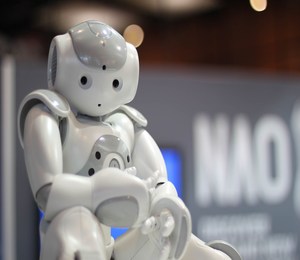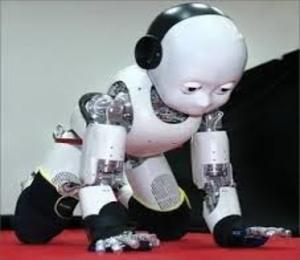Human infants acquire various cognitive abilities such as self-other cognition, imitation, and cooperation in the first few years of life. Although developmental studies have revealed behavioral changes in infants, underlying mechanisms for the development are not fully understood yet. We hypothesize that predictive learning of sensorimotor information plays a key role in infant development. Predictive learning is defined as a process to minimize the prediction error between an actual sensory feedback and a predicted one. For example, minimizing the prediction error enables infants to discriminate the self from others because the self’s body is controllable and thus recognized as a perfectly predictable entity. Social behaviors such as imitation and cooperation also emerge through predictive learning. A failure in others’ action, for example, induces a larger prediction error and thus triggers the execution of infants’ action to reduce the error, which results in a cooperative behavior. My talk will present our robotics studies investigating how predictive learning reproduces infant-like continuous cognitive development. Furthermore, a potential of our hypothesis to account for the mechanism of autism spectrum disorders (ASD) will be explained. Our research supports a recent hypothesis that ASD is characterized by a difficulty in learning of sensorimotor prediction rather than in social interaction.
Full Day Workshop (in Conjunction with Humanoids 2015 - South Korea - November 3, 2015)


